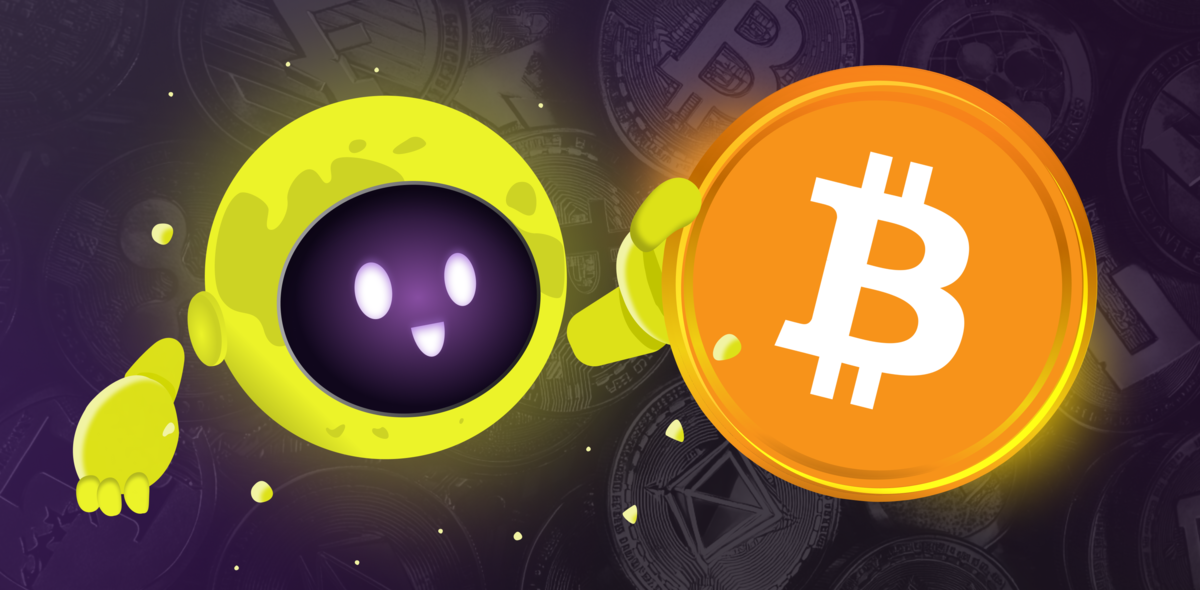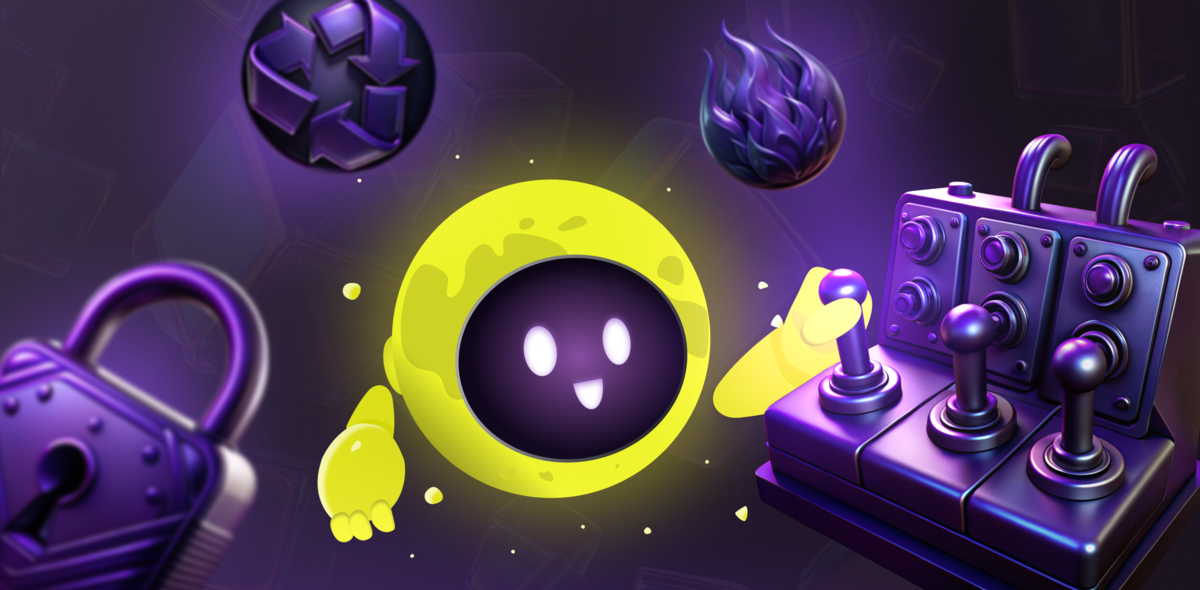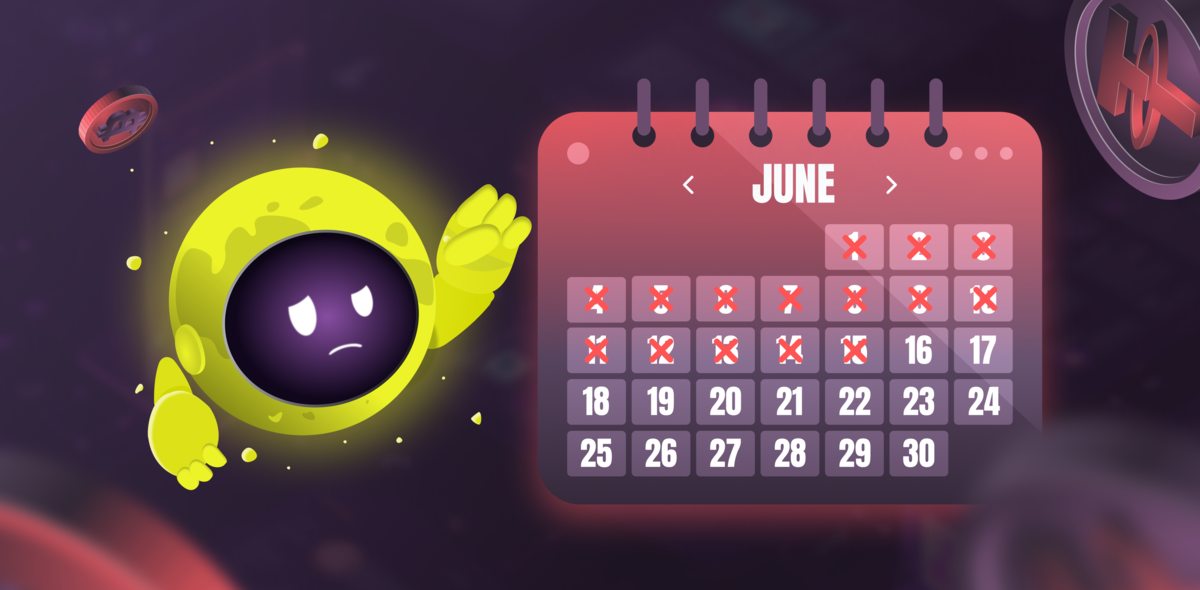
Bitcoin is a digital currency that can be sent, received, stored, or exchanged—similar to traditional money, but entirely online and without the need for banks or intermediaries. As the first-ever cryptocurrency, it started a new era of decentralized finance. Bitcoin operates 24/7, across borders, and with high transparency. Often referred to as “digital gold,” it’s valued for its scarcity, durability, and potential to preserve wealth over time.
In 2009, someone using the name Satoshi Nakamoto created Bitcoin, but the real identity of that person remains hidden. What we do know is that they launched a whole new financial system—one that doesn’t need permission to use.
Bitcoin was created right after the 2008 financial crisis, when trust in banks was at a low point. It offered a new way to send and store money without a bank or government in charge. Instead of relying on institutions, it runs on code and a public network. The idea was to give people more control over their money, using technology that’s open, secure, and not tied to any single authority.
Understanding Bitcoin: а simple explanation of BTC
So, what is BTC? Think of Bitcoin as digital property, like gold, but on the internet. It can't be seen or touched, but it has value. People buy it, trade it, and even save it like an investment.
Let’s break it down with an example:
You’re in Brazil, your friend is in Germany. Sending money through a bank might take 3–5 business days and cost a chunk in fees. With Bitcoin, it takes about 10–30 minutes. You both just need a wallet address.
And unlike traditional money, there’s a limited supply. Only 21 million BTC will ever exist. That scarcity is part of what gives Bitcoin value. Once all coins are mined, that’s it—no more can be created.
How Bitcoin works: Blockchain technology explained
The real magic behind Bitcoin is blockchain. It’s a public record—basically a digital book that keeps track of every Bitcoin transaction ever made.
Here’s a simple version:
- Someone sends 0.01 BTC to a friend.
- That transaction gets grouped with others into a “block.”
- Computers around the world (miners) verify that the transaction is legitimate.
- Once confirmed, it gets added to the blockchain permanently.
Every new block connects to the one before it, thus, blocks combine into a public and transparent chain that can’t be changed. That’s what makes it trustworthy.
Example: Anyone can go online and see the first-ever Bitcoin transaction from 2009. It’s still there.
How to get Bitcoin: buying, swapping, and earning BTC
There are several ways to get Bitcoin today:
1. Buy BTC
Platforms like Coinbase, Binance, or Kraken let you buy Bitcoin using regular money (like dollars or euros). One needs to create an account, verify identity, and start buying in minutes.
2. Swap Crypto
Users who already have Ethereum, USDT, or another coin can swap it for BTC. No need to cash out to fiat first. It’s fast and doesn’t need registration on most aggregator platforms. For example, users can easily exchange Bitcoin for another crypto at SwapSpace with the best rate out there.
3. Earn It
Some freelancers, developers, and even musicians now accept BTC for their work. Nowadays, people can also get paid in Bitcoin directly through websites like Bitwage or crypto gigs.
Bitcoin mining: where do new Bitcoins come from?
Simply put, mining is the process of making and obtaining new Bitcoins. It also keeps the whole network safe and running.
Miners are individuals (or companies) who use powerful computers to solve complex puzzles. When they succeed, they add a new block of transactions to the blockchain and earn newly minted BTC plus transaction fees.
It started small—people mined Bitcoin on their laptops. In the early days, you could earn 50 BTC per block. But now? It’s way more competitive. Mining farms with rows of hardware dominate the scene.
Interesting fact: The reward halves roughly every four years. It started at 50 BTC, then 25, 12.5, and now it’s 6.25. In 2024, it will go down to 3.125. This process is called the Bitcoin halving, and it’s part of what makes BTC scarce.
How to use Bitcoin in real life
You might wonder—can I use Bitcoin like traditional money? Yes, absolutely! Here’s a list of BTC use cases to choose:
- Shopping: Some online shopping portals like Overstock and Newegg accept Bitcoin as payment.
- Travel: At services like Travala and CheapAir, you can book flights and hotels using BTC and other cryptos.
- Gift Cards: Users can buy gift cards on Amazon, Uber, and Spotify with BTC.
- Peer-to-peer payments: Easy and fast transactions between individuals, without middlemen and bank commissions.
The real strength? Bitcoin can be used without any permission. With a crypto wallet, anyone can transact anytime, anywhere.
Pro tip: To explore other cryptos, users can easily swap BTC for ETH, MATIC, or dozens of other tokens without creating new exchange accounts.
Bitcoin as an Investment: big gains, big risks
Bitcoin has built a reputation as one of the most talked-about investments of the last decade. For some, it turned a few hundred dollars into millions. For others, it became a stressful endeavor with emotional highs and lows. Let's look closer at why things went a certain way and why not everyone made a profit.
What makes Bitcoin an attractive investment?
There are a few key reasons why people put their money into BTC:
- Limited supply: Only 21 million BTC will ever exist. The scarcity of Bitcoin is built into its design, making it similar to limited natural resources, and giving it a "store of value" appeal.
- Decentralization: No single person, company, or government controls Bitcoin. This structure helps protect the network from censorship, manipulation, and inflation, making it more secure and reliable over time.
- High potential returns: In 15 years, the price of Bitcoin grew over 100,000 times. This kind of growth rarely happens in any market and with any asset.
Real-world example
In 2010, Laszlo Hanyecz used his 10,000 BTC to pay for two pizzas. At that time, the coins were worth $41. Today, the same amount of BTC is worth hundreds of millions of dollars. This transaction became one of the most legendary in crypto history. It illustrates the long way Bitcoin has come and shows how far it has come. It also made early supporters rich long before the rest of the world caught on.
Volatility: the flip side
Bitcoin isn’t all upside. Its price swings are intense. It might gain 20% one week, and then lose 30% the next.
- In March 2020, the BTC price dropped to around $6,200 during the COVID-19 outbreak.
- After a year BTC price has already surpassed $65000.
- In 2022, the price of BTC dropped below $20,000 before going up again.
These swings can be stressful. New investors should be emotionally and financially prepared for sharp dips, not just steady climbs.
Different investment strategies
Here are some common ways people approach when it comes to Bitcoin investment:
- Buy and hold (HODL): This is the most popular method. You buy Bitcoin when it's relatively low, then wait, ignoring the price fluctuations, until it gains a lot of value again.
- Dollar-cost averaging (DCA): Instead of investing a big sum of money at once, you put in money in small amounts, like 20$ every week. This approach reduces the risk of buying at a peak and spreads the risk.
- Swing trading: Some try to take advantage of market changes—buying low, selling high, and repeating the cycle. This can bring profits but requires experience, market knowledge, and constant attention.
- Portfolio diversification: Many people don’t go all-in on Bitcoin. They make it a part of a broader portfolio with stocks, real estate, or stablecoins to balance the risk.
Bitcoin vs. traditional investments
- Compared to stocks: Stocks are backed by companies that produce goods or services, while Bitcoin, on the contrary, is backed by public trust and technology.
- Compared to gold: People used gold as money for thousands of years because it's rare, long-lasting, and holds value. Bitcoin is often called “digital gold” due to its limited supply and because it can't be easily faked. Like gold, it is seen as a legitimate way to protect money from inflation.
- Compared to fiat savings: In some countries, like Turkey or Venezuela, money loses value quickly because of the high level of inflation. People struggle to save money and have to look for alternatives, and Bitcoin becomes one of them.
Institutional interest
In the last few years, big institutional investors and international companies have started showing more interest in Bitcoin.
- Tesla bought $1.5 billion worth of BTC in 2021.
- MicroStrategy, a US software company, has been actively buying Bitcoin since 2020, as part of its long-term strategy.
- Financial companies Fidelity and BlackRock allow clients to invest in Bitcoin through ETFs and retirement plans.
With more big companies and investors getting into Bitcoin, the digital currency has become a part of the mainstream financial world.
What to watch out for
- Scams: Not all crypto platforms are safe. Stick to trusted services with good reputations.
- Self-custody risks: Private and non-custodial wallets don't store users' keys, so if you lose them, all the funds will be gone forever.
- Tax implications: Many countries set a tax on Bitcoin profits.
Legal side: how is Bitcoin regulated?
Bitcoin lives in a legal gray zone in many countries. It’s not illegal in most places, but it’s not treated like money either.
As Bitcoin became more popular, governments started paying attention. Why? Because it moves outside traditional banking, which challenges the system.
Let’s dive deeper into how different countries regulate Bitcoin:
United States
In the U.S., the IRS identifies Bitcoin as property, not a currency. It means selling or trading the asset is a subject of taxation.
The Securities and Exchange Commission (SEC) controls projects with investment potential. Luckily for BTC, it is not classified as a security, so it still faces less legal trouble than other cryptocurrencies. This gives Bitcoin more freedom and helps build trust around it.
At the same time, crypto exchanges in the U.S. have to follow strict Know Your Customer (KYC) and Anti-Money Laundering (AML) rules. These policies imply that if a person wants to buy or sell Bitcoin on these platforms, they will have to verify their identity, usually through an ID check.
European Union
The Markets in Crypto-Assets Regulation (MiCA) framework is setting new crypto rules in Europe. It’s a law that will create the same rules for all EU countries, helping to protect users and clarify crypto companies. The framework will roll out in stages through 2025 and aims to bring more clarity and safety to users and companies.
Under current rules, crypto is legal, and each country handles taxes differently. In Germany, for example, holding BTC for over a year excludes capital gains tax. In France or Italy, it's taxed more like income if actively traded.
United Kingdom
The UK government legally positions Bitcoin as a private asset. Anyone who sells or trades BTC and profits from it has to pay Capital Gains Tax. Businesses accepting BTC must report their value in pounds at the time of payment. The FCA doesn’t control Bitcoin, but it regulates crypto exchanges and advertising. Promoting crypto without proper approval can lead to penalties.
Asia
- Japan was one of the first countries that accepted Bitcoin as a legal form of payment. Crypto exchanges must follow strict rules and be licensed by the Financial Services Agency (FSA), which helps protect users and keep the market safe.
- In South Korea, a person can trade crypto only with a real-name bank account and verified ID. These rules are placed to reduce fraud and make the market safer for everyone.
- In 2021, China banned Bitcoin mining and trading, so mining crypto or running transactions in the country became illegal. However, many Chinese users still access BTC through offshore platforms.
Latin America
- El Salvador was the first country to make Bitcoin an official currency in 2021. Citizens can pay taxes and shop using BTC just like they would regular money.
- Brazil approved a crypto regulation law in 2022, allowing companies to offer crypto services legally. The central bank will supervise it.
Africa
- In Nigeria, crypto is widely used despite strict banking bans. People trade through peer-to-peer transactions that the government can't control.
- South Africa recently classified crypto as a financial product. This implies that now financial companies that offer crypto services have to register and follow the financial rules of the country, the same as banks or other financial businesses.
Laws are changing fast. Always check your country’s tax rules before trading or spending large amounts of BTC.
Common Bitcoin questions answered
What is Bitcoin based on?
Bitcoin is built on blockchain, a digital record book with data on every transaction. The data is locked, so nobody can change or cheat the system, but anyone can access and see the record.
How did Bitcoin start?
The beginning of Bitcoin dates from 2009 when a person or a group of people calling themselves Satoshi Nakamoto published a Bitcoin Whitepaper online. The document explained the idea of a digital ledger and how it will help people send money to each other without a bank or other intermediary. It became the first working version of Bitcoin.
What is BTC?
BTC is the ticker symbol for Bitcoin, much like USD represents the U.S. dollar. It is used to identify Bitcoin on exchanges, trading platforms, and wallets.
How do people get Bitcoin?
Most people buy Bitcoin on crypto exchanges using traditional currencies. Others mine it by using computers to verify Bitcoin transactions. Some earn Bitcoin by accepting it as payment for goods or services. It’s also possible to swap other cryptocurrencies for Bitcoin on trading platforms.
What is Bitcoin trading?
Bitcoin trading means buying and selling BTC to take advantage of price changes. Traders follow the market, study patterns, and try to buy low and sell high. Some focus on short-term movements, while others hold Bitcoin long-term and wait for its value to rise over time.
How to use Bitcoin?
People use Bitcoin to pay for products and services, send money across borders, invest for the future, or exchange it for other cryptocurrencies. Some use it to diversify their savings or protect their wealth in times of inflation.
Final thoughts
Bitcoin changes how the world sees money. It puts control in the hands of individuals and runs 24/7 without borders or middlemen. Whether people trade it, hold it, or spend it, Bitcoin continues to shape the future of finance.
Anyone new to Bitcoin should:
- Learn how Bitcoin and blockchain work.
- Choose secure wallets to store their BTC.
- Only invest what they can afford to lose.
- Stick to reliable and trusted platforms.
Stay curious and informed. Whether Bitcoin becomes the main currency of the future or not, it already challenges how people think about money and financial freedom.




